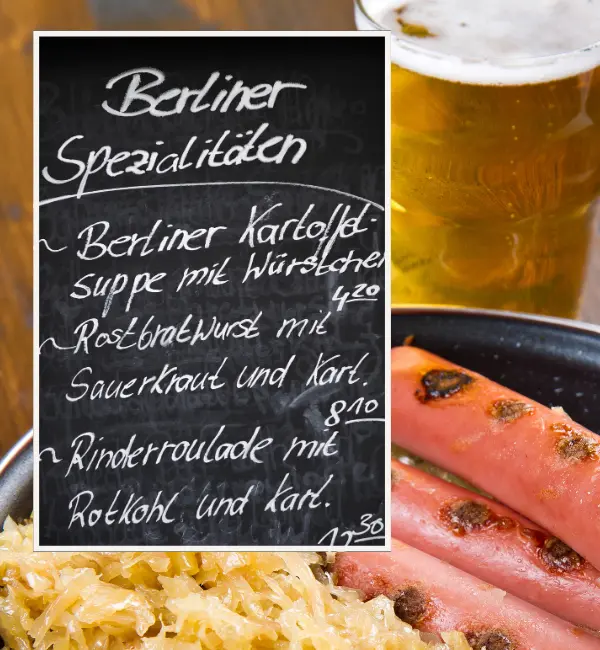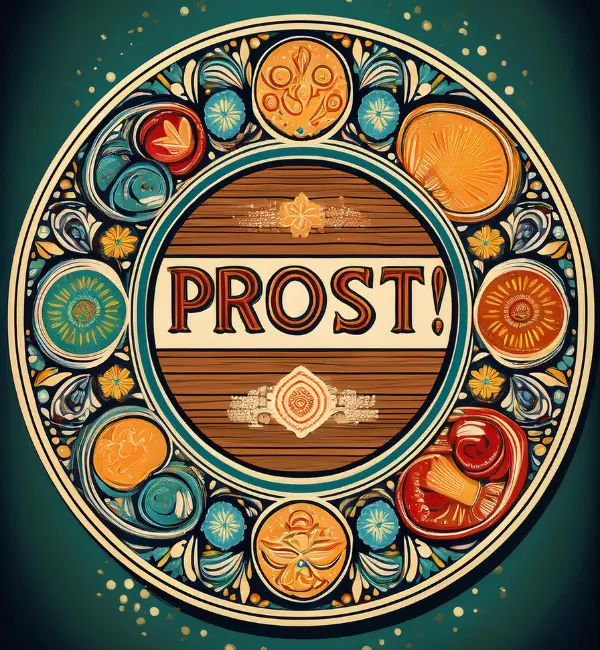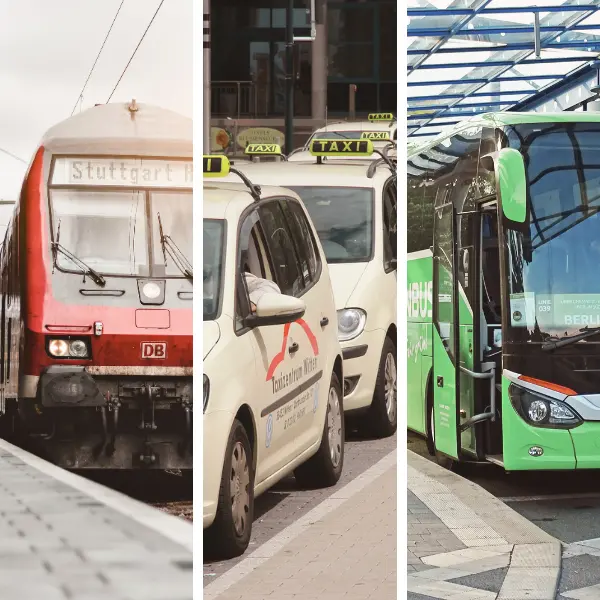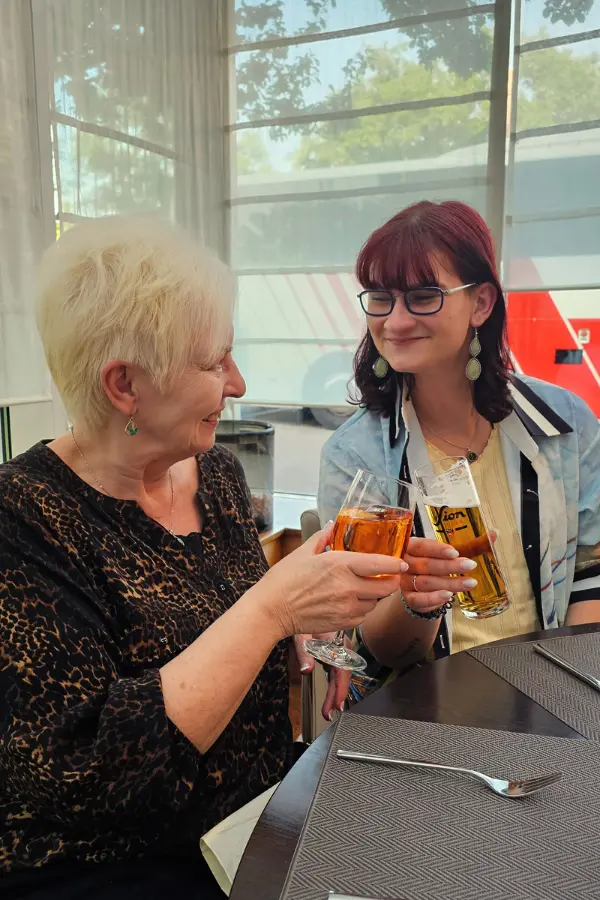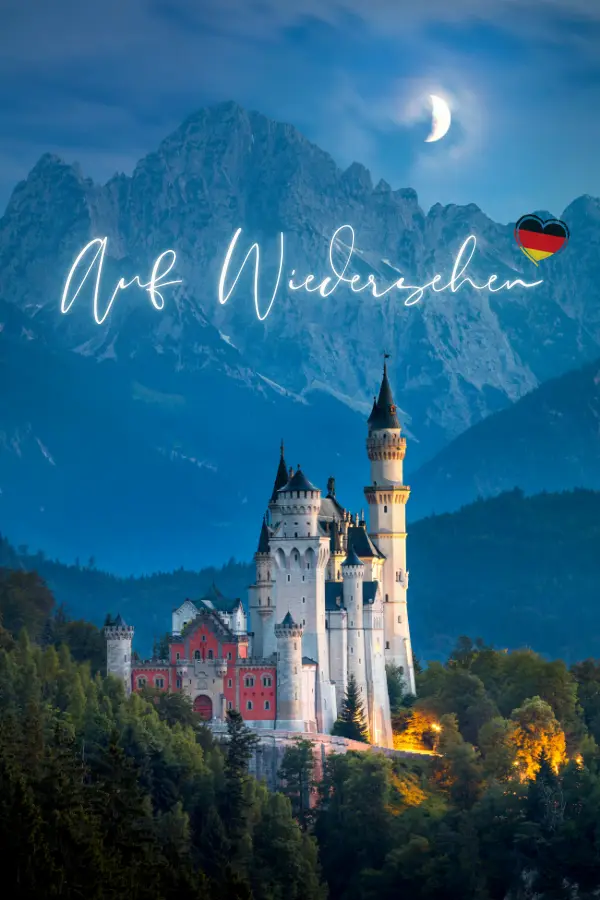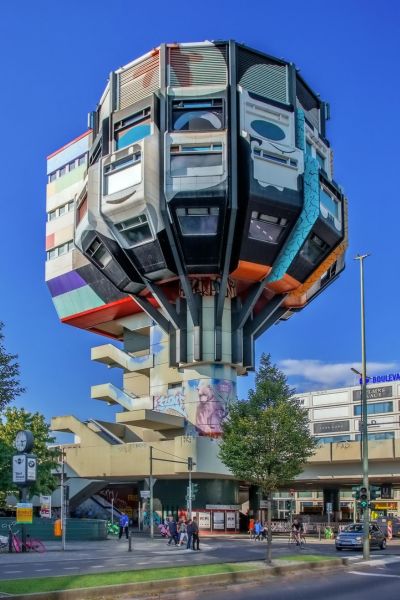- Home
- Germany Fun Facts
This is a TEST page! If you see this, please contact Tour My Germany and let us know!
By: Eran Fulson / Writer, Traveler, Explorer of Good Food & Historic Streets / For 15+ years, I’ve lived in Canada and Wales, road-tripped across North America, and trekked through Europe’s mountains, cities, and coastlines. Now, I help travelers uncover hidden gems and culture-rich destinations in Germany with firsthand insights and practical tips.
By: Lydia Fulson / Writer, Pyrography Artist, Thrill Seeker, and Traveler
By: Gerhild Fulson / Using her extensive experience and cultural knowledge, Oma Gerhild provides trusted, authentic, and easy-to-follow German recipes both here and in her many cookbooks.
On this page:
Here's more:
Gallery:
Like many good ideas, there was nothing originally serious about this post. It all began as a bit of fun while brainstorming ideas to write about Germany that weren’t necessarily found in a travel guide.
To my surprise there was an abundance of trivia about Germany that wasn’t common knowledge. As a result, Germany Fun Facts came to life bringing aspirations of enlightenment and humor along the way.
This page will be updated monthly, so bookmark this page and check back as our discoveries of interesting facts and translations are unearthed.
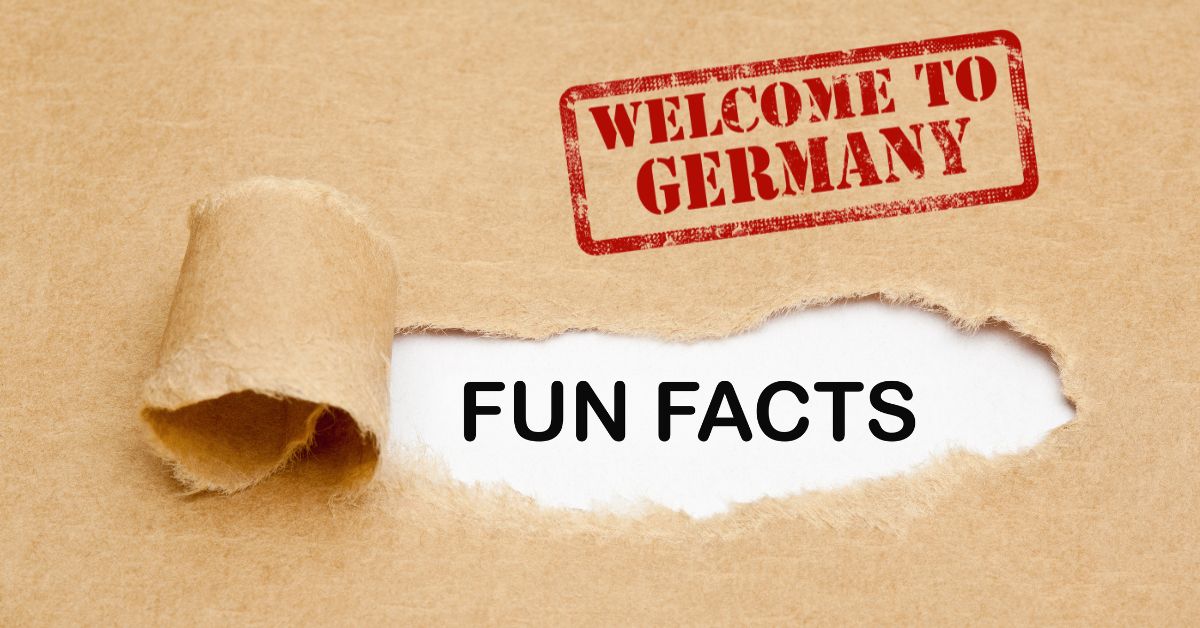
All due diligence has been given to fact-checking by using references such as Encyclopedia Britannica, Statista, Guinness World Records, and other officially credible sources (ie. not Wikipedia).
On this page:
Facts About Germany

Lingo Bingo - There is an approximate 60% similarity in the vocabulary between German and English. Meaning, if you wanted to learn one and knew the other, you’re already more than halfway there.
Now Repeat After Me - Chances are, you’ve never used the longest official word in the German language. Take a deep breath before giving this 63-letter behemoth a try:

A literal translation is “Beef labelling supervision duties delegation law.” Unbelievably, it was actually used in official government documents. That was, until 2013, when the beef labelling law was repealed.
FYI - Even if you went around the whole border of a Scrabble board, it still wouldn’t fit.
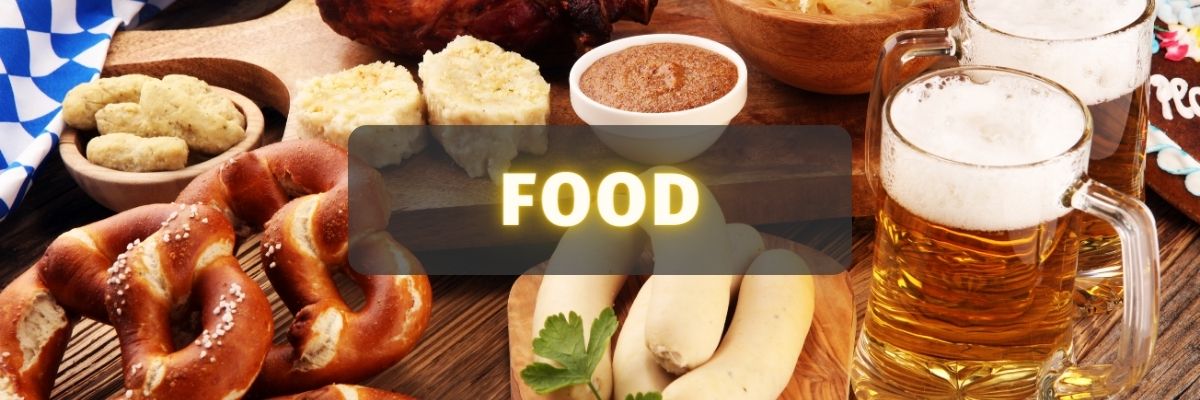
If Wurst Comes to Wurst - More than 800 million currywurst sausages are eaten every year in Germany - with 70 million consumed in Berlin alone.
The origins of the famed sausage are disputed between Herta Heuwer (Berlin) and Lena Brücker (Hamburg) in the late 1940s. While more credit is generally paid to Heuwer for the creation, they are both renowned for the barter and black market acquisition of the scarce ingredients to make the curried sauce in post-war Germany.
Whether it's to your taste or not, there is no disputing its rising popularity over the past 70+ years.
Stretchy Pants Time - If you’re going to do something, do it well, and do it often. And Germany has mastered the art of doing both. When it comes to food and drink, Germany boasts around 1,200 different types of sausages, 1,500 brewers producing around 5,000 various types of beer, and a staggering 3,200 officially recognised types of bread. German Bread Culture was added to the UNESCO Intangible Cultural Heritage List in 2014.
Cake or Death more cake! - Contrary to popular belief, the famous Black Forest Gateau was not actually created in the Black Forest. Instead, the name was derived from the liquor used to soak the cherries which gave the cake its distinctive flavour. The brandy was known as Schwarzwälder Kirschwasser (Black Forest Cherry Water). Confectioner Josef Keller claims he invented the cake near the city of Bonn in 1915.
Side-Fact: The Romans gave the Black Forest its ominous-sounding name due to the dense tree canopy which blocked out the sunlight above.
Cola-Schmola - When the US Trade Embargo came into force during the Cold War, imports of Coca-Cola syrup ground to a halt. Enter stage left: Fanta.
Searching for a replacement syrup led to a combination of what was readily available: beets, whey protein (by- product of cheese), apple pomace (apple pressing leftovers), and sugar. Salesmen were told to use their imagination in coming up with a new name for the drink. Cheekily, one suggested 'Imagination' which translates to 'Phantasie' and then led to - Fanta. Due to sugar rations the popular beverage was also used as a cooking ingredient for soups and stews to add flavor and sweetness.

Culture Club - Germany has a cultural wealth to rival anyone. And here are the numbers: There are 6,741 museums; 809 theatres; 129 professional orchestras; and 8,155 libraries. In fact, it ranks 2nd in the world behind the USA when it comes to museums. Some rather unique museums include those dedicated to mustard, comics, fragrance, and Christmas. (Figures correct as of 2023)
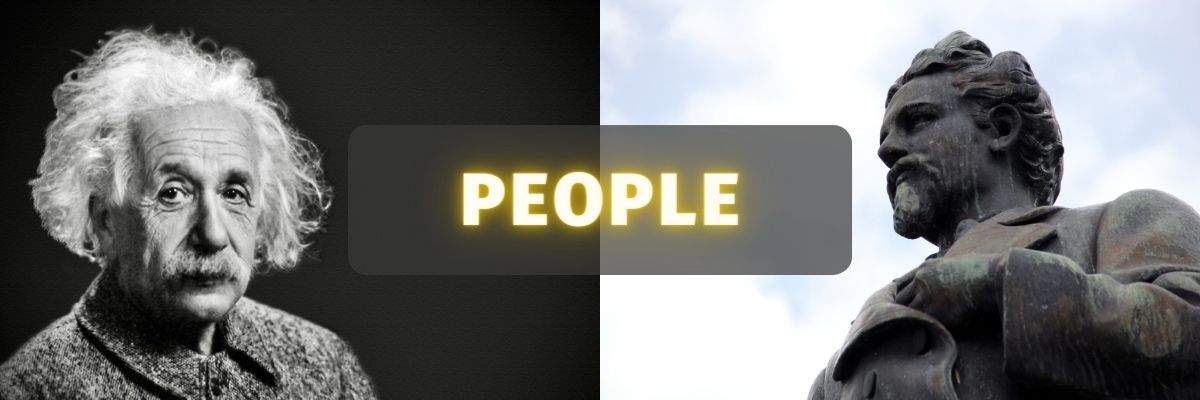
E=MC2 - Sure you know about Albert Einstein, especially as an eccentric genius who embodied the visual persona of an individual who didn't get out much. Lesser known is that his infamous mad scientist looks came from the stresses of becoming a father.
Years later, his wrinkly eyes would lead to the inspiration for Yoda's face in Star Wars. It's said that he loved the well-known photo of him sticking his tongue out. So much so that he requested nine photos to use as personal greeting cards.
Why So Grimm? - Brothers Jacob and Wilhelm Grimm have been fascinating and terrifying children and adults alike for over two hundred years. Linguists by trade, their lifelong work was actually a comprehensive German dictionary that was never finished. Fairy tales essentially paid the bills after growing up in a reality not far removed from the fantastical Hansel and Gretel.
Famously known as storytellers, they didn't actually create any of their two hundred fairy tales, instead, editing the stories they collected. Less famously, the many evil stepmothers in their stories were originally cast as mothers. However, they wanted to protect the sanctity of motherhood and altered the stories to fit.

The Need for Speed - The autobahn is undoubtedly as famous as lederhosen and schnitzel where German identifiers are concerned.
Stretching over 8,000 miles, the autobahn is the 4th largest highway network in the world after China, the US, and Spain. 70% of the autobahn has no posted speed limit, with a swift 257 mph standing as the highest recorded speed the highway has seen.
Check your tank before setting off - it's illegal to run out of fuel on the autobahn. Even if you're feeling lucky, traffic police are known to treat tourists and locals all the same.
Breathe In - Germany is home to many impressive inventions and Guinness World Records. The smallest among them is found in the town of Reutlingen. Measuring only 12.2 inches (31 cm) at its narrowest and 19.7 inches (50 cm) at its widest, the Spreuerhofstraße is officially recognized as the narrowest street in the world. It's also among the shortest at 12.4 feet long.
So why isn't this known as an alley? In 1820 a city official elevated it to street status and it stuck. Locals reportedly use the street as a diet indicator.
In other minuscule trivia, former chancellor Angela Merkel had a Barbie doll created after her in 2009. Disappointingly, the former physicist/politician lookalike never went on sale.
Now You Know German
There’s no denying German is a wonderful and unique language. Often self-explanatory, and say it like you see it. The English translation, however, isn’t always quite so clear.
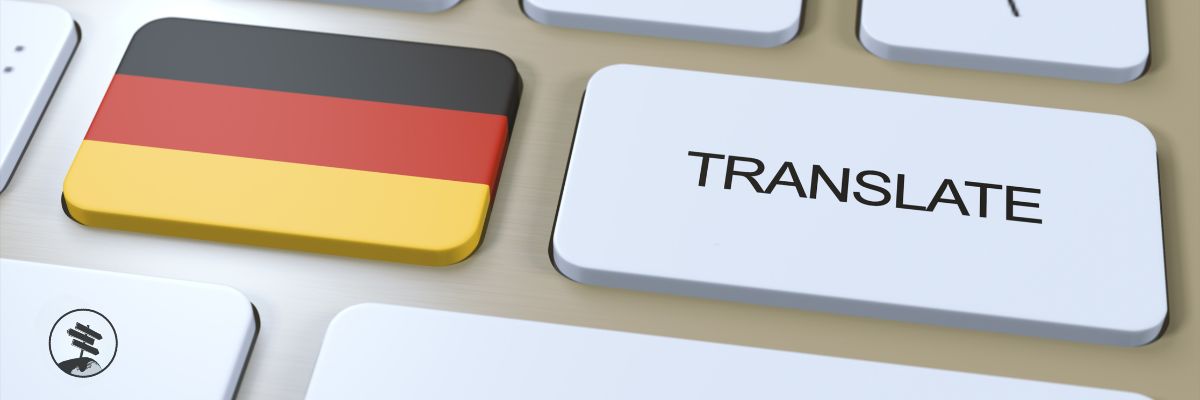
Purzelbaum (tumble tree)
Although it may not sound like it, a Purzelbaum is not a member of the plant kingdom. Instead, it refers to a forward somersault performed on the ground, like a tumbling tree. Obviously.
Treppenwitz (staircase joke)
You know those moments after leaving a conversation, and the best comeback, witty line, or hilarious joke always occur to you when it’s too late? There’s a word for that. The so-called Treppenwitz is the quip that comes to mind when you’re on your way down the stairs after talking to your neighbour three floors up.
Fernweh (distance pain)
While the English translation of Fernweh likens to the strains of a long-distance relationship, the only one involved is you. Fernweh is more akin to Wanderlust. A desire to be somewhere else exploring the world beyond your current abode. In a nutshell, it describes a longing to go on a holiday. While ‘pain’ might sound extreme, subtlety is not a particularly strong German character trait.
Bandwurmwöter (tapeworm words)
Germans are known for many things, among them: sausages, cars, efficiency, and the ability to pull off wearing lederhosen as no one can. However, in the linguist world, it’s the use of compound words to create new, tongue-twisting vocabulary additions that continues to amaze and entertain.
Bandwurmwörter is itself a compound word used to describe other compound words. Why create a whole new word when you have two perfectly good ones to mash together? Now that’s efficiency.
Nasenfahrrad (nose bicycle)
You’ll either get this straightaway or find yourself looking for the last place you put your nose bicycles to see if you read that correctly. That’s right, a nose bicycle (nasenfahrrad) is another name for glasses.
One can only guess that glasses do look similar to a bike on a nose. Just like a child sees a cardboard box as a spaceship - we’ll just let imagination have its day.
Honigkuchenpferd (honey cake horse)
Far from the obvious, a honey cake horse describes someone whose fullness of joyful emotion is on shameless display. English speakers would liken it to, "Smiling like a Cheshire cat."
The word is used in a phrase such as, "Du strahlst wie ein Honigkuchenpferd." Which roughly translates to, "You are shining like a honey cake horse." The jury is out as to what makes a honey cake horse particularly happy, but one can't deny the combination does sound appealing.
Luftschloss (air castle)
Think of it as a bouncy castle in your head where hopes and dreams run amok.
An escapism of sorts, a Luftschloss is where one goes and lives out scenarios or plans ambitions before enacting - or filing away under, "Maybe one day..."
Proverbially German
Sometimes, catching the gist of a saying without fully understanding is enough. Sometimes, not so much.

Alles hat ein Ende, nur die Wurst hat zwei.
(Literal) Everything has an end, only the sausage has two.
(English) All good things come to an end.
Klar wie Kloßbrühe.
(Literal) Clear as dumpling broth.
(English) Crystal clear.
Ich verstehe nur Bahnhof.
(Literal) I only understand train station.
(English) It’s all Greek to me.
Die beleidigte Leberwurst spielen.
(Literal) To play the offended liver sausage.
(English) To be in a huff.
Jetzt geht’s um die Wurst.
(Literal) Now it's about the sausage.
(English) It's now or never.
Jetzt geht's um die Wurst.
(Literal) Now it's about the sausage.
(English) It's now or never.
Die beleidigte Leberwurst spielen.
(Literal) To play the offended liver sausage.
(English) To be in a huff.
Ich glaub mein Schwein pfeift.
(Literal) I think my pig is whistling.
(English) I can't believe it.
Kleinvieh macht auch Mist.
(Literal) Small livestock poops too.
(English) Little things all add up.
Jetzt mal Butter bei die Fische.
(Literal) Put butter on the fish now.
(English) Get to the point.
Only in Germany
Germany is full of unusual and wonderful places to explore. Sometimes they're off the beaten path and not always in your standard travel guide, but they're still worth checking out.

Lost the Plot - Found in the Steglitz area of south Berlin, the Bierpinsel (aka The Beer Brush) was designed in Brutalism architecture to look like a tree. And nailed it - kind of.
It functioned off and on as a restaurant and nightclub since 1976 before eventually closing for good. These days, it functions primarily as a background for selfies.
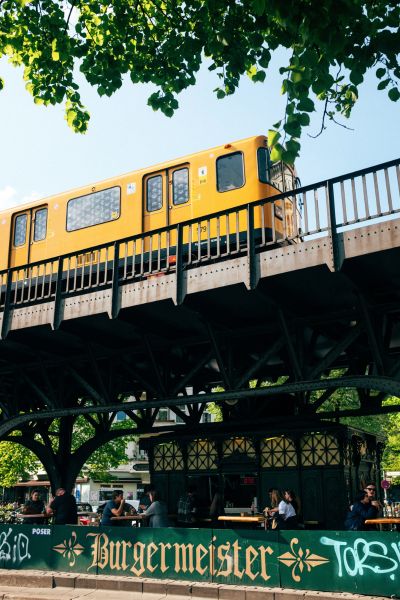
#2 Special Please - There's a burger place taking up residence at a former public bathroom under the railway in Berlin.
With Burgermeister scoring higher reviews and longer lines than the previous tenants, it's worth a visit when you're in town.






